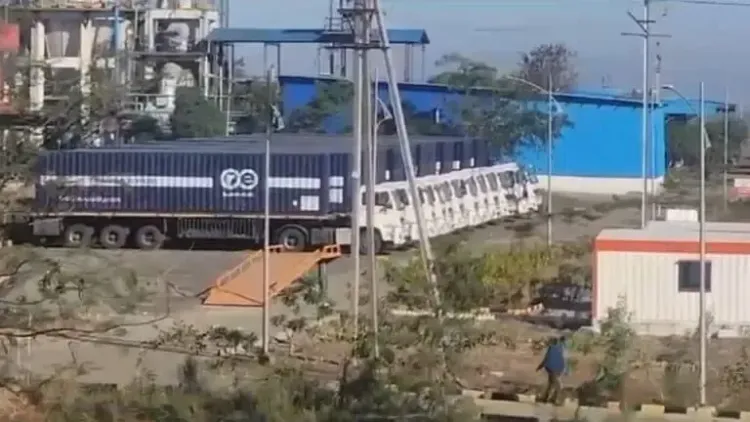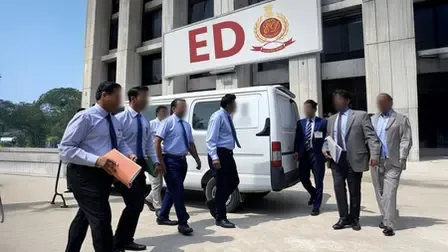Madhya Pradesh: Incineration of Hazardous Waste from Union Carbide Begins at Pithampur

Synopsis
Key Takeaways
- First phase of incineration of Union Carbide's waste initiated.
- 10 tonnes of hazardous waste being disposed of in compliance with court directives.
- CPCB and MPCB officials supervising the process.
- Live streaming of incineration to maintain transparency.
- No presence of toxic gases or radioactive materials detected.
Bhopal, Feb 28 (NationPress) The initial phase of the incineration process for Union Carbide’s hazardous chemical waste, transferred from Bhopal to the Pithampur industrial site, commenced on Friday, following the orders from the Madhya Pradesh High Court.
A delegation of senior officials from the Central Pollution Control Board (CPCB) and Madhya Pradesh Pollution Control Board (MPCB) visited the Ramky factory to establish a standard operating procedure (SOP) for the disposal of 10 tonnes of waste during this initial phase.
The waste from five of the twelve truck containers was unloaded under the oversight of the Dhar district collector and other responsible authorities, including CPCB and MPCB, and the incineration process began.
Dhar district collector Priyank Mishra stated that the trial incineration of 10 out of approximately 337 tonnes of hazardous waste started on Friday, with the entire procedure expected to take about 72 hours.
The incineration is being closely monitored by a team of CPCB officials.
According to Mishra, the disposal of waste from the Union Carbide factory is conducted in accordance with the SOP developed by both the Central and State Pollution Control Boards, following the high court's mandate.
The hazardous waste consists of soil from the now-defunct Union Carbide factory in Bhopal, reactor residues, Sevin (pesticide) residues, naphthol residues, and 'semi-processed' residues.
Indore Division Commissioner Deepak Singh, who inspected the incineration facility, informed reporters that current reports indicate no presence of methyl isocyanate (MIC) gas in this waste, nor does it contain any radioactive materials.
Singh also mentioned that the incineration process is being streamed live outside the waste disposal plant in Pithampur to prevent any misunderstandings arising from rumors.
He added that the ash, solid residues, water, and gases produced during the waste destruction process will also be properly disposed of.
This development follows the Supreme Court's recent approval for the disposal of hazardous waste packed and loaded in 12 truck containers at the Pithampur industrial site since January 2.
The disposal of hazardous chemical waste is being supervised by the Madhya Pradesh High Court.
On February 18, the high court mandated that the first test of 10 tonnes of waste be conducted on February 27, adhering to safety protocols. If no adverse effects are observed, the second test will take place on March 4, followed by a third test on March 10.
On the night of December 2-3, 1984, a catastrophic leak of highly toxic methyl isocyanate (MIC) gas occurred at the Union Carbide factory in Bhopal, resulting in the deaths of at least 5,479 individuals and causing severe disabilities in thousands.









